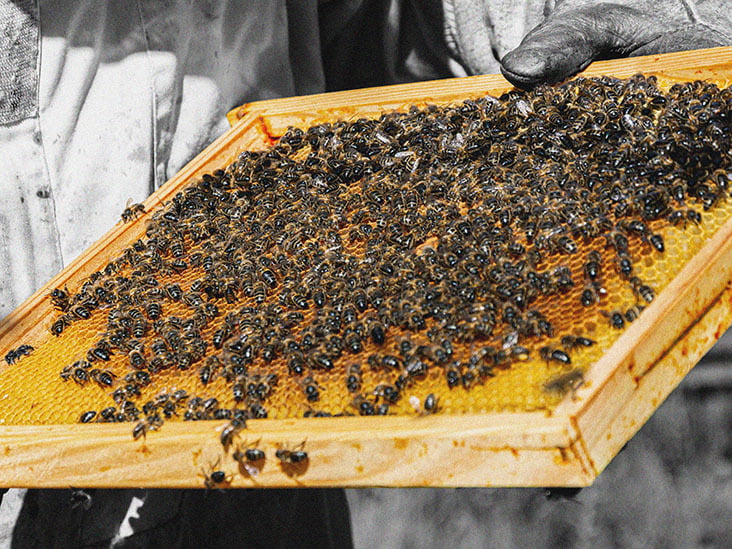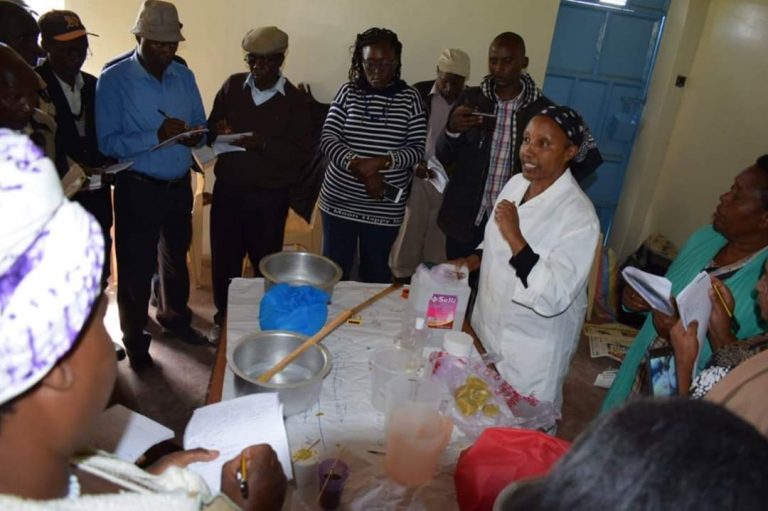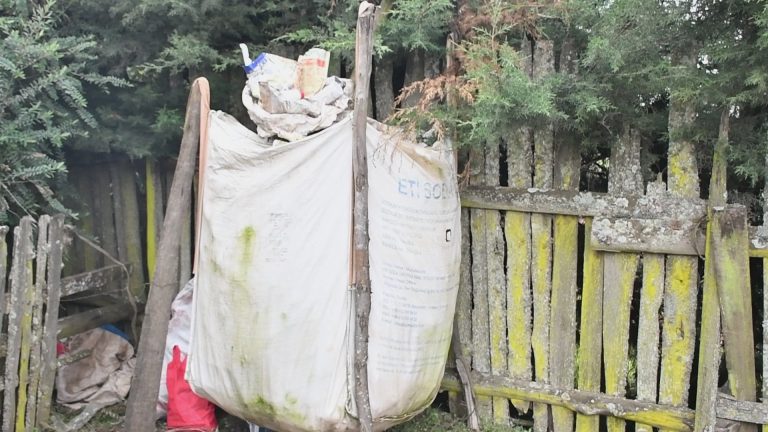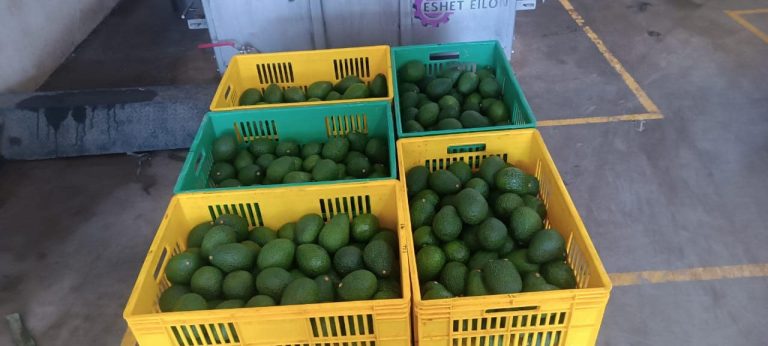By Kimuri Mwangi
Whenever bees are mentioned, honey is what comes into the mind of many people. But do you know honey is just one product that is produced by the busy bee? Apart from honey, bees also produce Propolis, Royal Jelly and Bee venom. Today let us look at propolis.
Propolis is a sticky, waxy substance that bees create by mixing their saliva with beeswax, along with compounds from various plants and trees.
Propolis is generally known as the “bee glue”, which is a generic name that refers to the resinous substance accumulated by the bees from different types of plants. The word “propolis” is derived from Greek to mean defence for “pro” and city or community for “polis”, or the beehive, in other words. Bees use the material for reducing the size of the hive entrance, filling cracks, polishing the interior of the hive, strengthening comb attachment, killing intruders by covering them and as barriers against ants (nest defence).
Propolis is composed mainly of resin (50%), wax (30%), essential oils (10%), pollen (5%), and other organic compounds (5%). Phenolic compounds, esters, flavonoids, terpenes, beta-steroids, aromatic aldehydes, and alcohols are the important organic compounds present in propolis
Twelve different flavonoids, namely, pinocembrin, acacetin, chrysin, rutin, luteolin, kaempferol, apigenin, myricetin, catechin, naringenin, galangin, and quercetin; two phenolic acids, caffeic acid and cinnamic acid; and one stilbene derivative called resveratrol have been detected in propolis extracts by capillary zone electrophoresis.
Propolis also contains important vitamins, such as vitamins B1, B2, B6, C, and E and useful minerals such as magnesium (Mg), calcium (Ca), potassium (K), sodium (Na), copper (Cu), zinc (Zn), manganese (Mn), and iron (Fe). A few enzymes, such as succinic dehydrogenase, glucose-6-phosphatase, adenosine triphosphatase, and acid phosphatase, are also present in propolis.
Propolis is used in human medicine and for veterinary purposes. Currently, several pharmaceutical companies across the world use propolis in the production of drugs. Several other companies use propolis for the manufacturing of medicinal soaps because its antibiotic properties inhibit the growth of microorganisms.
It is also used for making adhesives like glue and wood pastes for sealing leaking roofs and cracks on wooden furniture. When chewed it heals backaches. Propolis and its extracts have numerous applications in treating various diseases due to its antiseptic, anti-inflammatory, antioxidant, antibacterial, antimycotic, antifungal, antiulcer, anticancer, and immunomodulatory properties.
“Many people think of bees only in terms of honey. While honey itself is great for wealth, health and job creation, it is of the lowest value compared to the other bee products,” says Kyalo Mutua Maveke the CEO of Savannah Honey a leading company in the promotion of Honey, Propolis, Royal Jelly and Bee venom production in Africa.
Mutua adds that the demand for propolis in Kenya has skyrocketed with very few people engaged in its production mainly due to the lack of information. “Propolis is a high-income earner which if exploited can triple the income of a beekeeper,” he adds.
Commercial propolis harvesting involves the use of the propolis trap which is a plastic mesh sheet which the bees use to build the propolis on.
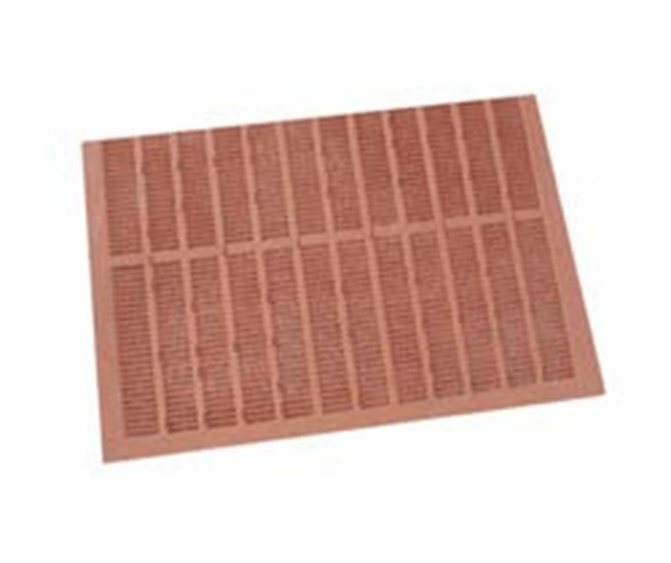
Savannah Honey is currently recruiting over 1000 clients on a 5 years contract for the production of honey and Propolis. Under this programme, Savannah Honey supplies 20 and above specialized Langstroth hives together with the Propolis Collectors to the client “For commercial purposes, we advise clients to start with 20 hives or more but clients can also start with a few and increase the number with time,” says Mutua.
Savannah Honey undertakes the delivery and installation of the hives, manages the apiary, that is providing technical support to ensure maximum colonization and
production. They also provide harvesting and marketing services for five years. In case the client gets a buyer with a better offer, they can sell to them but retain at least 20% for Savannah Honey.
“Some people have huge parcels of land and they are just lying idle when they can get millions of shillings out of it from beekeeping,” opines Mutua.
You can contact Savannah on +254 724 052 975 or http://www.savannahhoney.co.ke/


